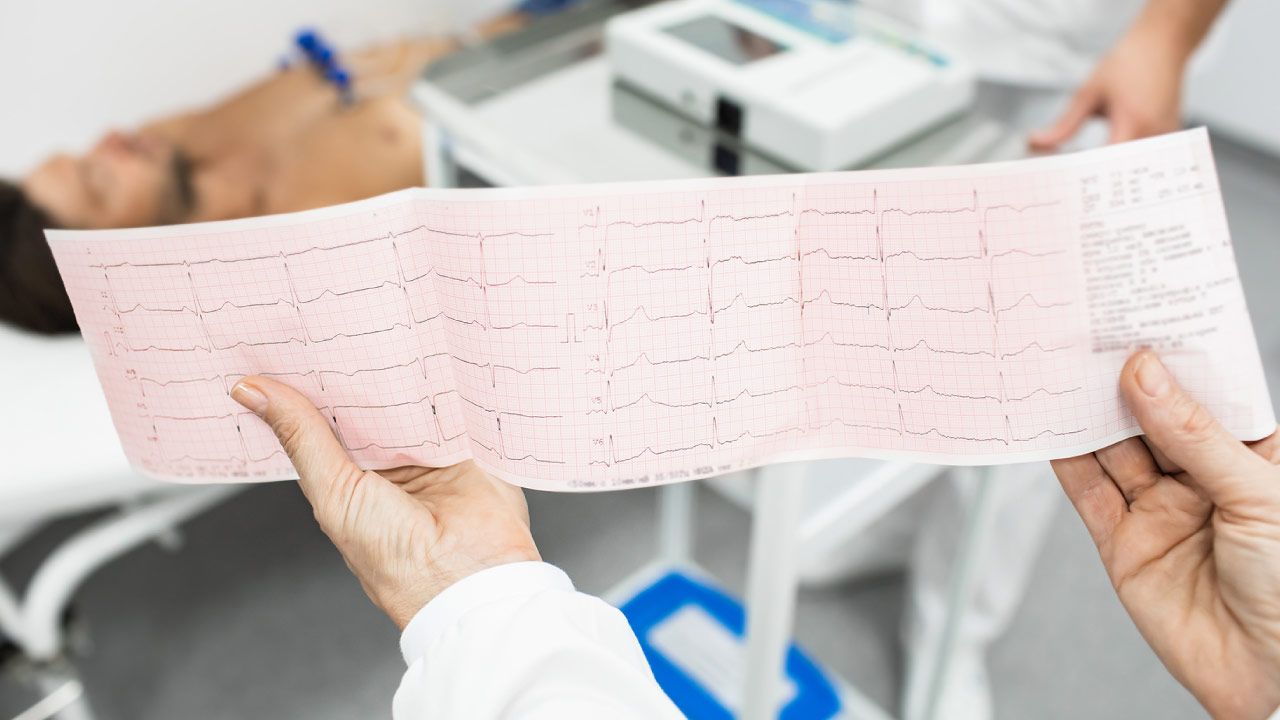
ECG or EKG, called an electrocardiogram, is used to check the rhythm and electrical activity of the heart. Types of ECG are resting ECG, exercise ECG, Holter monitoring, etc. ECG testing is done to identify the cause of chest pain, as part of pre-surgical procedures, assess the efficacy of implanted pacemakers, and diagnose heart problems.
During the testing, the electrodes are attached to the chest, arms, and legs.12 leads are placed whose wires are connected to the electrodes. Then the ECG machine starts recording the rhythm and electrical activity of the heart on the ECG monitor and after tracing is completed, electrodes and leads are removed.
It mainly helps the doctor diagnose certain conditions like atrial fibrillation, Brugada syndrome, myocardial infarction, etc. Electrocardiography refers to the process of producing an electrocardiogram. Some of the symptoms which indicate that the ECG has to be done are shortness of breath, fainting, seizures, and murmurs.
The test usually takes about 5 to 10 minutes to complete. It is a quick, safe, painless, and non-invasive procedure.